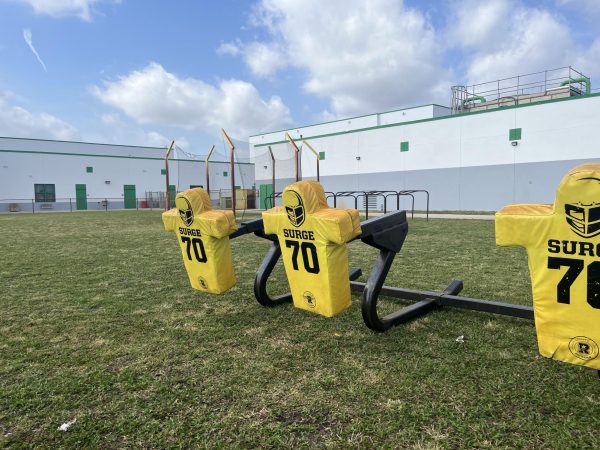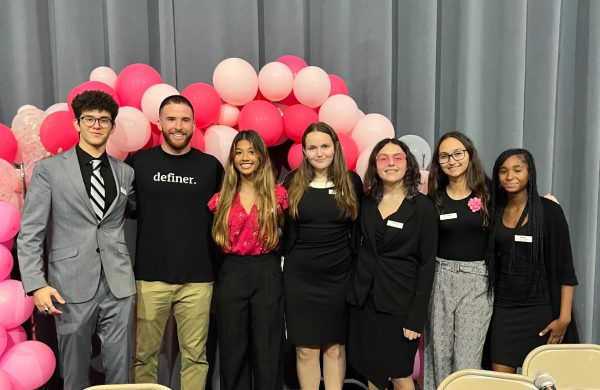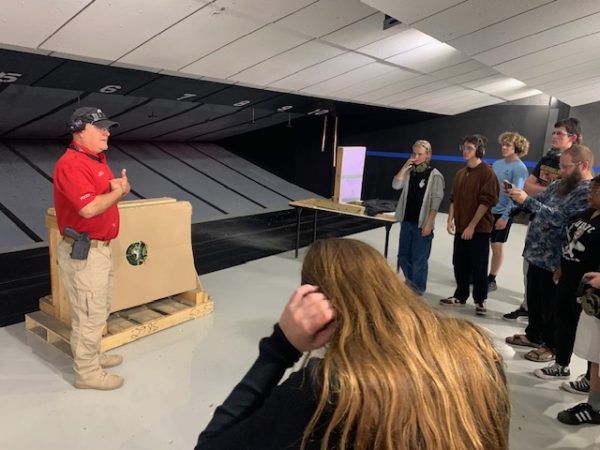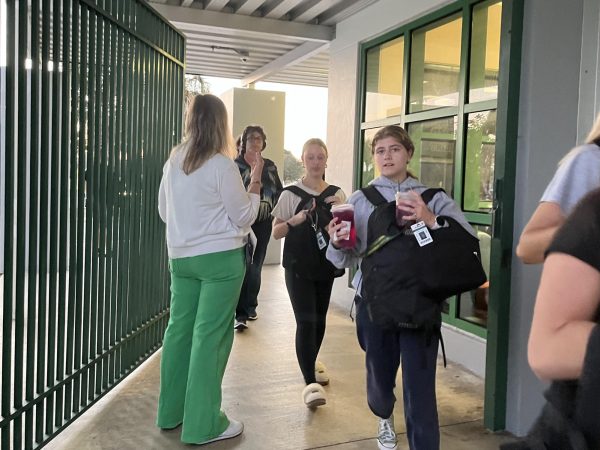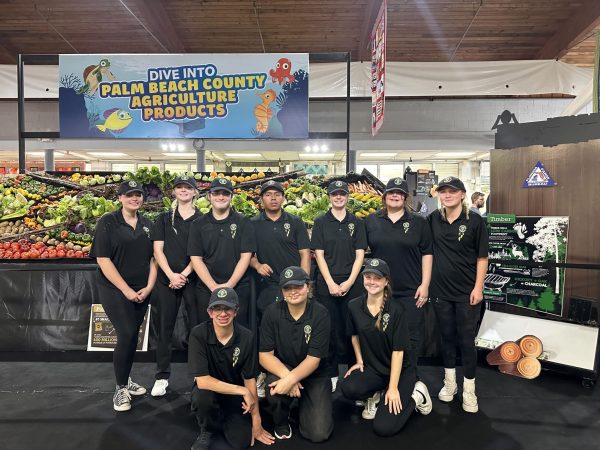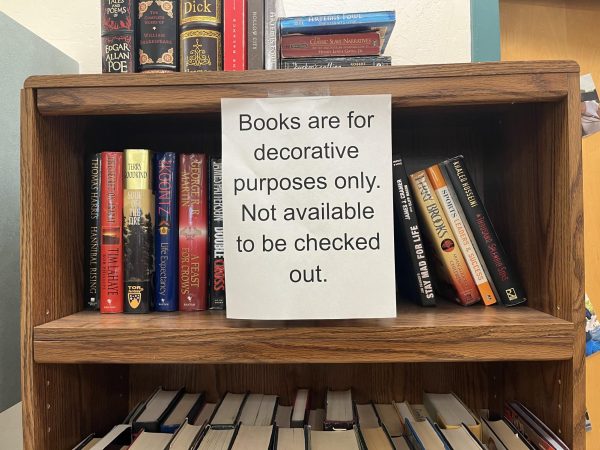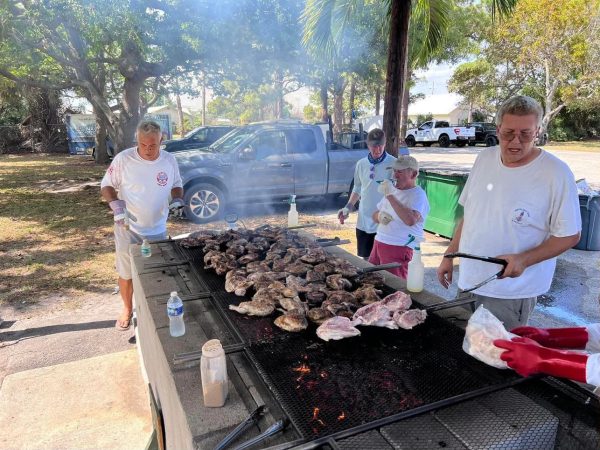JHS raises mental health awareness
Michael and Tammy DeLeonardo, JHS faculty members, present a video lesson on mental health that was available to students via Google Classroom on May 1.
During the coronavirus pandemic, mental health is more important than ever.
Jupiter High School conducted a seven-lesson series on mental health beginning April 23. The virtual lessons were presented in Google Classroom, and if students wanted follow-up with school personnel regarding the topic of any of the seven lessons, they could join the Mental Health Support Google Meet that met every day for an hour at 2 p.m. during the seven-lesson series.
“At the beginning of quarantine, I felt my happiness slipping through my fingers, leading me to be unmotivated and to have a bad attitude. With the school’s mental health lessons, I have learned so many different techniques to deal with this situation,” junior Emma Kearns said.
AICE Art and Digital Media teacher Sarah Knudtson and AP Biology teacher Shari Rodgers started off the series with a video that addressed recognizing signs and symptoms of mental health disorders and reducing the stigma of those disorders. Students watched the video in their science class and completed related assignments.
“The first lesson was very impactful for me because I was uneducated on this topic, and it opened my eyes to so much more. By participating in this lesson, I was able to accept that everyone struggles, and it’s not a bad thing and help is always available,” junior Brianna Paleno said.
The second lesson on April 24 addressed substance abuse prevention and human trafficking. AP English Language and Composition teacher Lillian Gilbert and AICE Language teacher Deidra Wilson presented an informative video for students to watch in their English class.
“I think these lessons are very important to high schools because stuff like this happens daily in the high school setting. Drug abuse is very prominent in teens and hopefully, this lesson will teach the students there is a different way to cope,” Kearns said.
Lesson three on April 27 was equally informative and addressed suicide prevention. School Counselor Natalie Diaz and English teacher Roseann Accardi-Nichols, in their video, talked about the terminology associated with suicide and, more importantly, the ways to get help.
Guidance counselors Amy Hand and Meghan Thornton discussed strategies to develop healthy coping techniques in video lesson four on April 28 that students watched in their fine arts and elective classes.
“You can choose to look at the negatives in the circumstance, or [you] can actively look for the positives. Your attitude will be reflected to others and can influence their response to you,” Thornton said.
In lesson five, Math teacher David Andersen and AP US History teacher Michael Fleming discussed strategies to support a peer, friend or family member with a mental health disorder. They talked about how many people struggle with mental health disorders and that anyone can make a difference to someone who has a mental health disorder. Students watched the lesson in their social studies class on April 29.
Ceramics teacher Brian Kovachik and Medical Academy teacher Peyton Ellis discussed prevention of mental health disorders in lesson six. Students watched the video lesson in their science class on April 30. The lesson addressed the importance of mental health awareness in high school because both students and teachers need to be mindful of what those around them are enduring.
“The anxiety coping mechanisms we went through were applicable to my own life. I find myself using the techniques now. It doesn’t matter what age you are, mental health affects everyone,” Ellis said.
SGA advisor and AICE Global Perspectives teacher Michael DeLeonardo and his wife, Choice and Career Academy Coordinator Tammy DeLeonardo, discussed local and community resources for mental health. Students watched the video lesson in their fine arts and elective classes on May 1.
If you or someone you know is in distress, call the National Suicide Prevention Hotline at 1-800-273-TALK. You can also chat online with a counselor at the Lifeline Online Chat at https://suicidepreventionlifeline.org/chat/ or text a counselor at the Crisis Text Line (text HOME to 741741 or go to www.crisistextline.org). Another resource is the Hope for Healing website at http://www.hopeforhealingfl.com/.



